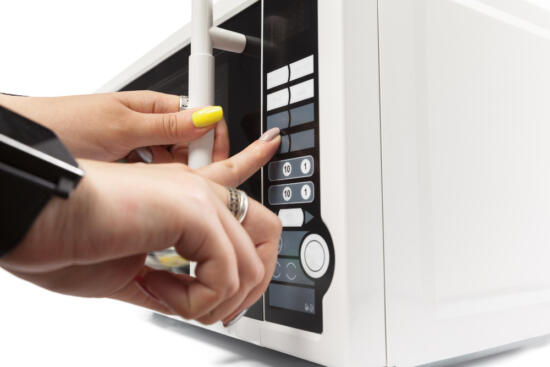Has your mind ever wandered into the realm of household appliances and their many surprising uses? Today, we’re taking a deep dive into one such enigma: does microwaving water purify it?
We’ve all been there – standing in front of the microwave, watching as our mug of water spins on the carousel, waiting for that telltale ding. But have you ever paused to wonder, “Could this simple act of heating be doing more than just making my beverage hot? Could it also be purifying the water?” Let’s uncover the truth together.

The Short Answer
Before we plunge into the details, let’s get straight to the point. Yes, microwaving water can, in fact, help to kill certain microorganisms that might be living in your water. However, it’s important to note that this method is not as effective or comprehensive as other methods of water purification. Keep reading to discover why!
The Science Behind Microwaving
Microwaves work by generating radio waves at a specific frequency. These waves are absorbed by water, fats, sugars, and certain other substances, which in turn convert the wave energy into heat through a process called dielectric heating.
When it comes to water purification, this heat can kill or inactivate many types of microbes, including bacteria and viruses. The process is similar to boiling water on the stove – the heat disrupts the cellular structures of the microbes, rendering them harmless.
However, it’s crucial to understand that microwaves may not heat water evenly. This could result in “cold spots” in your water where microbes survive.
The Limitations of Microwave Purification
While it’s true that microwaving can kill many harmful organisms, it’s not a magic bullet for water purification. There are a few important reasons for this:
1. Ineffective Against Chemical Contaminants
First and foremost, microwaves have no effect on chemical contaminants. If your water contains harmful substances like lead, pesticides, or other pollutants, microwaving will not remove them.
2. Potential for Cold Spots
As we mentioned earlier, microwaves can create cold spots in water. If these areas don’t reach a high enough temperature, some microbes could survive.
3. It’s All About Temperature and Time
To effectively kill microbes, water needs to be heated to a certain temperature and must stay at that temperature for a specific amount of time. According to the Centers for Disease Control and Prevention (CDC), most harmful microbes will die at temperatures above 158°F (70°C), but it takes at least one minute at this heat to ensure they’re inactivated.
The Verdict: Should You Rely on Your Microwave for Water Purification?
So, can you rely on your microwave for water purification? If it’s your only option and the water is otherwise believed to be chemically safe, then microwaving could help in a pinch. But, for the most reliable purification, it’s best to use methods specifically designed for that purpose, such as boiling on a stovetop, using a water purifier, or adding water disinfection tablets.
Remember, clean water is vital for health, so it’s always worth ensuring you’re doing it right. Stay curious, stay hydrated, and keep exploring the fascinating world around you!
Wrap Up: Microwaving Water for Purification
There you have it! Microwaving water can kill certain microorganisms, but it’s not the most reliable or comprehensive method for water purification. It’s a fascinating topic, and we hope you’ve enjoyed exploring it with us.

Jay
Jay is a health and wellness enthusiast with expertise in water quality and nutrition. As a knowledgeable advocate for holistic well-being, Jay successfully manages Type 2 Diabetes through informed lifestyle choices. Committed to sharing reliable and authoritative insights, Jay combines firsthand experience with a passion for enhancing health."
